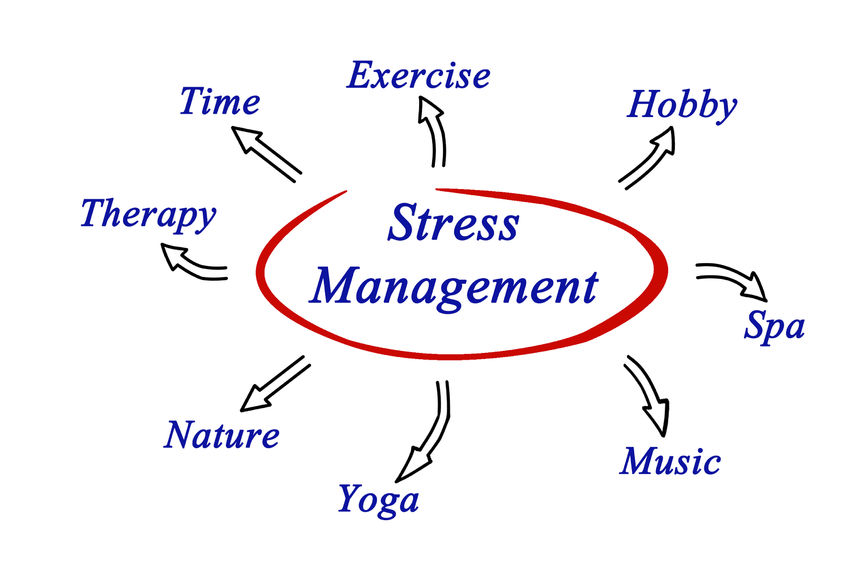
by Rob Berton | Jan 5, 2018 | Locum Tenens |
Locum Tenens in Healthcare
According to a recent survey on physician staffing trends, 94 percent of healthcare facilities reported using locum tenens physicians in 2016.[1] At a time when clinics and hospitals are facing physician shortages and evolving delivery models, locum tenens doctors are playing an increasingly important role in providing medical care.
Why Healthcare Providers Are Turning to Locum Tenens Assignments
One of the main reasons that many physicians turn to locum tenens work is because it offers a more flexible schedule than traditional hospital or clinic placements. With a flexible schedule, physicians can choose when and where to work. Locum tenens assignments also provide physicians with benefits such as:
Diverse experience
Not everyone is ready to settle into a permanent position at one facility. Locum tenens enables a physician to try out various hospitals and healthcare services in different states.
More family time
With so many patients to care for, most professionals do not find enough time to be home with their family. Locum tenens allows physicians to stop thinking about work when they are away from the office.
More “me” time
With a flexible schedule, you can focus on a hobby and other personal interests. You can also use your free time to improve your skills.
More revenue
Some doctors use locum tenens to help supplement their income. If you find a recruiter who is searching for physicians willing to work in place of another physician, you may not want to pass up on the opportunity. It will provide you with new experiences as well as a paycheck.
Locum Tenens and Indian Health Services
Physicians who start taking locum tenens tasks can enjoy improved time management and develop a better attitude about their work. There are a few ways to begin as a locum tenens physician. Many doctors find this type of work through Indian service organizations. Working with Indian services can be rewarding because it gives you the ability to meet the medical needs of underserved Native populations affected by disproportionate disease burdens.[2]
References:
[1] https://www.staffcare.com/15-uses-of-locum-tenens-physicians-clinicians-in-health-staffing-plan/
[2] https://www.ihs.gov/newsroom/factsheets/disparities/

by Rob Berton | Dec 21, 2017 | Locum Tenens, Uncategorized |
A recent survey[1] showed that there are now 48,000 physicians who work as locum tenens. Three years ago, this number was just 44,000. Back in 2002, there were only 26,000 physicians. The growing number may signal to other people who work in the healthcare industry that there are indeed benefits when working as locum tenens.
Many physicians who face the choice of whether to work in a locum tenens agency or a medical group often lean toward the latter. Being a “placeholder” can have several perks.
Opportunity to Be More Selective
When you choose to be a locum tenens provider, you can be more selective regarding the positions you will work on. For instance, you can opt for assignments in underrepresented states or in areas where you have family roots. You may also work on behalf of veterans, Indian Services or other special health organizations.
Gain Skills and Enjoy New Hobbies
If you are a physician, you might think that no time exists for you to have a hobby. With locum tenens, it is possible. Since you can seek out assignments that you prefer, you can gain skills that you know would offer you an advantage.
The schedule is also flexible. After the locums task, you can go straight to your home without worries about your job. This is why locum tenens is considered a family-friendly assignment.[2]
It Is Not About Productivity
When you work with a medical group, oftentimes you need to focus on being more productive rather than treating your patients. Agencies consider you as an independent contractor[3], so you get paid based on the number of hours you work. On the other hand, medical groups might require the physician to complete certain procedures. Therefore, the focus is on meeting the numbers and not the patients, which is one thing that doesn’t occur with a locums assignment.
If you have ever encountered a recruiter from a locum tenens agency and he or she promised you that you will earn more money, you may have found it hard to believe. Medical groups are often regarded as high-paying employers, but many times agencies may provide better compensation. They also reimburse housing and gasoline expenses among other expenses.
References:
[1] https://www.staffcare.com/survey-use-of-temporary-locum-tenens-physicians-increasing/
[2] https://www.nalto.org/locum-tenens-family-friendly/
[3] https://www.medpagetoday.com/kevinmd/41085

by Rob Berton | Dec 13, 2017 | Locum Tenens, Nurse Practitioner, Physicians, Uncategorized |
Excessive Stress Levels in Healthcare Work Environments
It’s no surprise that healthcare providers are often prone to high stress levels. Healthcare professions can be quite taxing. The pressures can often be extremely overwhelming as well. It isn’t uncommon to hear physicians speaking about demanding and chaotic work schedules. Nurses and other healthcare professionals aren’t immune to difficult schedules, either. If you’re looking for tips that can help you ease stress in medical work settings, there are many options that may help significantly. Stress management is something that calls for effort, time and consideration. Managing stress well can do a lot for your own comfort and peace of mind. Patients pick up on providers who are happy, rested and balanced as well.
Indications of Excessive Stress
If you’re a medical provider who simply has too much on your plate, chances are you know it better than anyone else. It can help to know about signs and symptoms that frequently point to stress levels that are out of control. These include:
• Unusual nervousness
• Uncharacteristic behavioral patterns
• Headaches
• Tense muscles
• Focusing issues
• Lack of desire to do well on the job
• Alcohol dependence
• Not caring about your social life anymore
• Digestive woes
• Exhaustion
• Sleeping difficulties
Medical professionals who develop any of these signs should take action as soon as possible.
Minimizing Your Stress Levels for Good
If you want to say goodbye to immoderate stress, there are several approaches you can take. It can help to look on the bright side of things. A positive outlook can do wonders for your spirits. Stop making every day feel like doom and gloom. Think about all of the things you have to appreciate. Think about the good things you’re doing for your patients and for the community. Proper time management practices can also help you decrease your stress. Make a point to designate some pleasant “me” time on a regular basis.[1] Take a nap. Get a new hobby. Don’t be afraid to ask other people for assistance. If you can manage your stress levels well, having a job at the Indian Service or as a Locum Tenens recruiter can be a rewarding one that can provide you with a whole host of personal benefits.
References
[1] https://psychcentral.com/lib/reducing-stress-at-work

by Rob Berton | Dec 7, 2017 | Locum Tenens |
Maintaining your own health as a Locum Tenens medical provider is critical for many reasons. Poor health habits can lead to dangerous errors while doing your job, which in a healthcare role could have significant consequences for patients. If you gain considerable weight or become visibly unhealthy, your credibility as a medical professional might be called into question by other physicians and patients. Finally, it takes its toll on your personal health. While working as a traveling Locum Tenens provider, whether for private employers or government programs like the Indian Service, apply these tips to keep yourself in top shape.
Take Advantage of Hotel Equipment
Most hotels offer some kind of exercise facility for their guests. These facilities are often equipped with common workout machines, such as treadmills. There is usually no additional cost to use them, so getting in the habit of spending time in these facilities for an hour or so every night will kick-start the hobby of exercising even as you travel. You can also do exercises in your room that require no equipment.[1]
Walk Hallways or Malls
Some hotels, particularly business hotels, make walking or even jogging the halls easier by having each floor in the shape of a square. Others just have straight hallways down each floor, but you can still get some steps in by walking up and down them as well as climbing the stairs. Malls have become the destination of “mall walkers” for good reason. It’s relatively easy to just do laps around a mall and get some exercise while remaining indoors. If the weather is nice and you are sure you won’t get lost, exercising outside is always an option as well. Your recruiter can tell you more about the area in which you’ll be staying.
Eat Healthy While Eating Out
While traveling, you likely won’t have the time or resources to cook your own well-balanced meals, although you can certainly bring your own food.[2] This means you will be eating out more frequently and need to watch your diet due to the unhealthy nature of certain foods served in restaurants. Smartphone apps can assist you with this, and many restaurants now list calorie counts next to all of their menu items. Choosing light options is usually helpful. If you can order off the children’s or senior menu, that is something to consider as well because portion sizes are generally smaller. Watching your food intake will have a lot of benefits for your waistline and your overall health.
References
[1] https://www.huffingtonpost.com/smartertravel/10-hotel-room-exercises-y_b_11224854.html
[2] https://www.nytimes.com/2017/09/25/travel/healthy-eating-while-traveling.html

by Rob Berton | Oct 10, 2017 | Blog, Locum Tenens, Opioid Crisis, Opioid Epidemic |
The Opioid Epidemic in the United States
In 2015, the number of Americans killed by guns was exceeded by those killed by heroin overdose. [5] According to the Drug Enforcement Administration, overdose deaths from drugs including pain killers and heroin have now become the “leading cause of injury death in the United States.” [4]
“Pill Mills” and Cartels
This phenomenon can be attributed, in part, to prescriptions made in haste by reckless physicians. Clinic after clinic has been observed and often prosecuted for excessively prescribing painkillers to patients. Though law enforcement efforts have succeeded in lessening their presence, “pill mills” still exist across the country. Established for the purpose of distributing painkillers for illicit use, these pill mills have been a highly significant contributor to the ongoing epidemic. [4]
While physicians at more reputable clinics often cut patients off when they suspect painkiller abuse, this approach can often result in undesired consequences. Drug abusers, and even legitimately sick people, find themselves forced to cope with withdrawal symptoms. Withdrawal from opiates can be intensely painful without a controlled drawdown, leading these people to immediately seek relief. They can find relief in the alternative to prescription painkillers – heroin. [9]
Made plentiful by drug traffickers, cartels and other criminal organizations, heroin use has steadily increased since 2007. [4] As it is far cheaper than painkillers and no prescriptions are required, heroin is fast becoming the drug of choice for those who would previously only use pills. [9] A synthetic opiate known as fentanyl, which is even more powerful than heroin, has also been observed making waves in the nation. Drug overdose deaths resulting from this toxic substance have skyrocketed since 2014. [8]
The breadth of the issue can be observed most clearly with one startling statistic. Drug overdoses have increased to the point that they are a significant factor in the recent reversal of the longstanding upward trend in American life expectancy. This has not occurred in more than two decades. [2] Furthermore, emergency care units have seen sharp rises in cases regarding overdose victims. [3] With such sharp increases, medical facilities are being strained, and calls have been made for action to be taken to reverse the trend. The economic costs alone are staggering: Health and social costs are estimated to be $55 billion with an additional $20 billion in medical care. [6]
Government Response
In response to the ongoing opioid epidemic, the federal government plans to contribute increased funds to the CDC and other health agencies. The hope is that these agencies can help reverse the disturbing trend of abuse and overdoses by implementing stricter regulation of prescription drugs. [6] Federal policies also aim to ramp up law enforcement efforts, both on the federal and local levels, to fight drug trafficking organizations. [1]
References
- https://www.washingtonpost.com/news/wonk/wp/2017/07/31/white-house-opioid-commission-to-trump-declare-a-national-emergency-on-drug-overdoses/?utm_term=.b2dfbd3c46b5
- https://www.cbsnews.com/news/drug-overdose-deaths-heroin-opioid-prescription-painkillers-more-than-guns/
- http://www.medscape.com/viewarticle/885013
- https://www.dea.gov/docs/2015%20NDTA%20Report.pdf
- https://www.nytimes.com/2017/01/06/us/opioid-crisis-epidemic.html
- https://www.hhs.gov/sites/default/files/Factsheet-opioids-061516.pdf
- http://hightimes.com/news/jeff-sessions-drug-overdoses-are-top-lethal-issue-in-the-u-s/
- http://www.cincinnati.com/story/news/2017/08/30/ohio-drug-overdose-deaths-more-than-double-thanks-fentanyl/618778001/
- http://www.cnn.com/2014/08/29/health/gupta-unintended-consequences/index.html

by Rob Berton | Oct 10, 2017 | Blog, Locum Tenens |
Great Opportunities in Home Health as a Nurse Practitioner
The opportunities as a nurse practitioner are endless and rewarding as you work to help others in need. Nurse practitioners are in high demand all over the world because these trained professionals help patients who need care on a daily basis.[2] It is a wise a choice to consider the benefits of careers in home health.
Benefits for Nurse Practitioners in Home Health Care
Nurse practitioners are in high demand, and so is the salary to compensate a professional whose job is to look after elderly or sick patients. You will not be required to work in a high-pressure environment, and you will also have the chance to enhance your skills in your career field as a caregiver. Usually, you will be the only person responsible for taking care of your patient. This means that you have the chance to create a special bond between you and your patient, which you may not find working in a hospital.
What to Expect as a Nurse Practitioner
If you want to take up a career in home health care, you should first ask yourself if you are ready to commit to the responsibility. You will need to rely on your own skills, knowledge and self-sufficiency [3]. Another factor to consider is the emotional stress you may gain from this occupation as you will be working very closely with your patient, perhaps on a daily basis. You will need to be prepared for anything at any time. You will need to rely on your mental and physical strength to handle any situation that may occur while remaining calm at all times.
Expectations of a Nurse Practitioner
One of the main reasons why nurse practitioners are in high demand is because of the level of personal care they provide and their extensive training. The hours may be long and hard at times, but that is expected with this line of work. It is your duty to take on the challenge when caring for your patient. You’ll need to follow specific procedures that your patient will require and be professional even when faced with tasks that may be uncomfortable at times.
A Career Path to Consider
It is important to consider all of these factors before diving into careers in home health. Although being a caregiver is difficult and takes a tremendous amount of sacrifice, you will extend a patient’s life for all the hard work you do. A nurse practitioner’s profession is honorable and a great challenge in itself. If you are dedicated, compassionate and kind when taking care of elderly or terminally ill patients, this career path may be for you.
References:
[1] https://www.nursepractitionerschools.com/faq/what-is-np
[2] https://medlineplus.gov/ency/article/001934.htm
[3] https://www.workitdaily.com/nursing-skills-practitioner/






